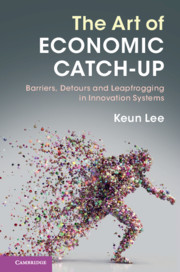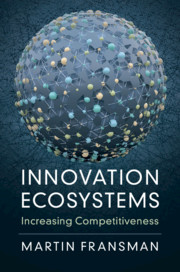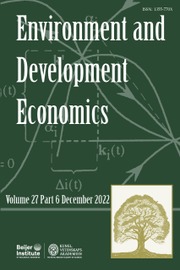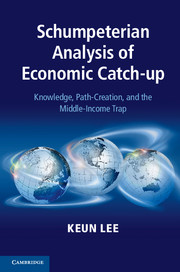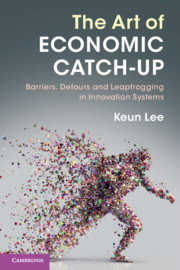Modern Evolutionary Economics
Evolutionary economics sees the economy as always in motion with change being driven largely by continuing innovation. This approach to economics, heavily influenced by the work of Joseph Schumpeter, saw a revival as an alternative way of thinking about economic advancement as a result of Richard Nelson and Sidney Winter's seminal book, An Evolutionary Theory of Economic Change, first published in 1982. In this long-awaited follow-up, Nelson is joined by leading figures in the field of evolutionary economics, reviewing in detail how this perspective has been manifest in various areas of economic inquiry where evolutionary economists have been active. Providing the perfect overview for interested economists and social scientists, readers will learn how in each of the diverse fields featured, evolutionary economics has enabled an improved understanding of how and why economic progress occurs.
- Describes in detail the evolutionary perspective on economic activity
- Provides a comprehensive survey of the different fields of research where evolutionary economists have been active
- Gathers the leading thinkers in the field of evolutionary economics in one volume
Reviews & endorsements
‘An excellent summary of what has been achieved in the field of evolutionary economics. I would hope that this book would be read by scholars steeped in ‘neoclassical' economics and make them appreciate the power and potential of this scholarship.' Joel Mokyr, Northwestern University, Illinois
‘The publication of this clear and comprehensive introduction to the evolutionary dynamics of modern capitalism could not be more timely. The nature, causes and consequences of economic change are at the heart of current debates about the nature of capitalism, its virtues and vices locally, nationally and globally. This work draws on a wealth of economic thinking, old and new, to elucidate the primary role of innovation to the economic process and I can think of no better introduction to the pervasive and incessant role of human creativity to the operation of capitalism as an ordered but far from equilibrium system.' J. S. Metcalfe, Emeritus Professor, University of Manchester
‘Nelson and Winter's 1982 book on evolutionary economics was one of the most influential economic publications of recent decades, with an immense impact on neighbouring social sciences. Now, 35 years on, Nelson and other leading scholars examine how, in a rapidly changing world, evolutionary economics helps us understand the role of technological advance, the evolution of firm capabilities and behaviour, the nature of Schumpeterian competition and industrial dynamics, long-run economic development and the process of ‘catching up' by developing economics. These analyses, along with the challenges set out in the final chapter, provide the framework for the continuing development of evolutionary economics over coming decades.' Ben Martin, University of Sussex
Product details
May 2018Hardback
9781108427432
378 pages
235 × 157 × 19 mm
0.52kg
4 b/w illus.
Available
Table of Contents
- 1. Economics from an evolutionary perspective Richard Nelson
- 2. Technological advance as an evolutionary process Giovanni Dosi and Richard Nelson
- 3. The behavior and capability of firms Constance Helfat
- 4. Schumpeterian competition and industrial dynamics Andreas Pyka and Richard Nelson
- 5. Evolutionary perspectives on long run economic development Andreas Pyka, Pier Paolo Saviotti and Richard Nelson
- 6. Economic catch-up by latecomers as an evolutionary process Keun Lee and Franco Malerba
- 7. The evolution of evolutionary economics Kurt Dopfer and Richard Nelson.


